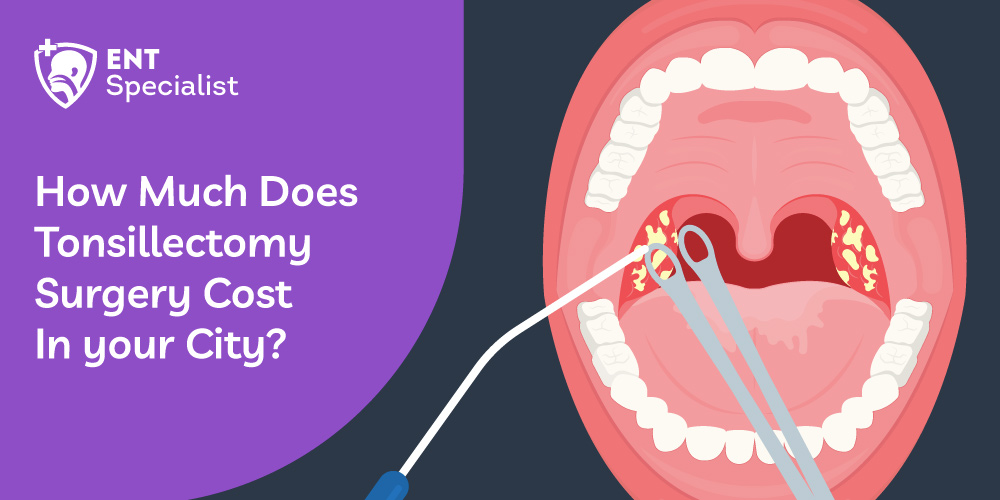What are the different surgical techniques used by the ENT surgeon during the tonsillectomy?
- Coblation tonsillectomy – The surgeon removes the inflamed tonsils by destroying the surrounding tissues that attach them to the pharynx. The surgeon uses low radio frequency during the operation, which is usually less painful than the conventional tonsillectomy that involves surgical tools.
- Cold knife dissection – As the name suggests, the surgeon ablates the swollen tonsils using a steel scalpel that detaches them from the pharynx. There is no pain involved since the patient is under anesthesia. Excessive bleeding is prevented by using sutures or extreme heat (electrocautery) after the surgery.
- Electrocautery or Cauterization – This technique uses heat treatment to remove the infected tonsils by simply burning away the tissues through cauterization. The procedure ensures minimal bleeding due to heat treatment.
- Harmonic scalpel – This method uses ultrasonic vibration to remove inflamed tonsils and stop bleeding at the same time.
- Radiofrequency – This method ablates the tonsils using a carbon dioxide laser or/and microdebrider.
Do’s and don’ts after the tonsillectomy.
Do’s after the tonsillectomy:
- Take pain relievers and other medicines as directed by the ENT doctor
- Place a bag of ice on the neck to reduce swelling or pain after the procedure.
- Encourage liquid diet or soft foods like gelatin, ice cream, and mashed potatoes
- Use a cool humidifier to soothe your throat
Don’ts after the tonsillectomy:
- Don’t stay close to people with a cold, sore throat, and infections that are contagious.
- Don’t drink orange juice and grapefruit
- Do not eat hot and spicy foods
- Do not gargle or brush your teeth tooth harshly
- Do not cough, sneeze, or blow your nose
How to prepare for Tonsillectomy surgery?
Some of the pre-surgery instructions or tips before tonsillectomy are as follows –
- Inform your doctor of any medical conditions or ongoing medications to avoid any complications during the surgery.
- Do not smoke or consume alcohol before surgery as it may affect the surgical procedure as well as the recovery period.
- You will be advised to not eat or drink 9 hours prior to the surgery. This can affect the anesthesia. The doctor usually recommends skipping dinner before the day of the surgery.
- You may have to remove your jewelry or nose piercings before going to the hospital for a tonsillectomy.
Questions to ask your ENT doctor before tonsillectomy
- Are there any alternative treatment options for tonsillitis apart from the surgery?
- What can I expect after my tonsil removal?
- Is it safe for my kid to undergo a tonsillectomy?
- What are the complications of tonsillectomy?
- My child is frequently getting tonsillitis. Should I be concerned?
- When can my child resume school and daily activities after tonsillectomy?
- I am undergoing treatment for another medical condition. Is it okay to undergo a tonsillectomy at the same time?
Book an appointment for your tonsillectomy with the top ENT specialist today!
You can fill out the appointment form on our website with your details. Our staff will get in touch with you at the earliest and gather necessary inputs from your end. An appointment will be fixed with the consecutive ENT specialist according to your schedule, and a nominal consultation fee will be charged.





